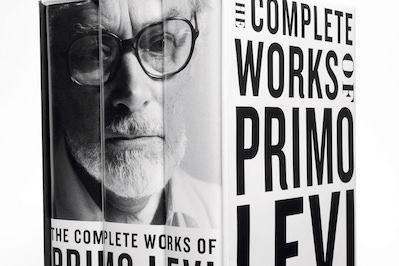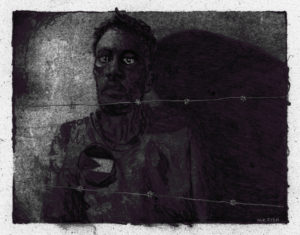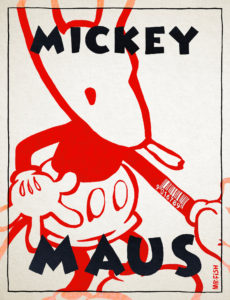Primo Levi, Complete
"I deliberately assumed the calm and sober language of the witness, not the lament of the victim or the anger of the avenger It is you who are the judges" Those are the words of Primo Levi, one of the most essential writers of the 20th century -- particularly of the Holocaust" Those are the words of Primo Levi, one of the most essential writers of the 20th century -- and particularly of the Holocaust. Liveright
Liveright
Liveright
“The Complete Works of Primo Levi” A book edited by Ann Goldstein and translated from the Italian by Stuart Woolf, Ann Goldstein and others
Here, amid all the print-on-demand paperbacks and downloadable e-texts, is old-school publishing on a grand scale. Once more, Robert Weil of W.W. Norton, now director of its Liveright imprint, has produced a magnificent edition of an important, if slightly neglected, author. To Weil we already owe “The Complete Works of Isaac Babel,” edited by the Russian short-story writer’s daughter Nathalie Babel; a uniform edition of Patricia Highsmith’s five thrillers about the charming murderer Tom Ripley; a gigantic omnibus volume of Henry Roth’s multi-part novel, “Mercy of a Rude Stream”; and now this boxed set of the complete works of the Italian-Jewish writer Primo Levi.
I won’t pretend to have read all of these nearly 3,000 pages, but I can at least point out some of the features that make this edition so valuable. For instance, Volume I opens with an appreciation of Levi by Toni Morrison, succeeded by editor Ann Goldstein’s general introduction, relating the 15-year history of this huge project and stressing that virtually every work has been newly translated, often by a multi-talented writer such as Jonathan Galassi, Jenny McPhee or Nathaniel Rich. As Goldstein observes, Levi consistently “strove in his writing for lucidity, precision and conciseness — qualities that he attributed in part to his training and profession as a chemist.”
There then follows a detailed chronology of the writer’s life. Born in 1919 to a comfortably middle-class family in Turin, Italy, the young Levi read widely in world literature — Thomas Mann, Aldous Huxley, Darwin, Tolstoy — but early on, he decided to become a chemist. Only when the fascist Italian government promulgated racial laws did Levi grow seriously conscious of his Jewish identity. Eventually, he joined a youthful resistance group, was soon arrested and, shortly afterward, loaded onto a boxcar destined for Auschwitz. Of the approximately 650 men, women and children in his group, more than 500 were immediately sent to the gas chambers.
Because Levi was healthy, knew some German and was very lucky, he survived and later recounted his horrific experiences in the 1947 memoir, “If This Is a Man.” In the years after its publication, though, he worked as a chemist in a paint factory to support his wife and two children. On the side, he also wrote what his friend (and editor) Italo Calvino dubbed stories of “biological” science fiction, eventually collecting these as “Natural Histories.” In 1963, Levi published “The Truce,” an account of his months-long journey — through much of Eastern Europe — to get back home after his liberation from Auschwitz.
In 1975, this chemist-turned-paint-factory-manager took an early retirement to launch a full-time literary career. Over the next dozen years, Levi contributed essays to the Italian newspaper La Stampa, translated Kafka’s “The Trial,” wrote more fiction and produced “The Periodic Table,” a series of autobiographical “microhistories” each linked to a different element. In 1986, he summarized his final thoughts on the Holocaust in “The Drowned and the Saved.” And then, in 1987, suffering from depression and the aftereffects of prostate surgery, Levi unexpectedly tumbled to his death in the stairwell of his Turin apartment building. Whether suicide — the initial explanation — or an accident has never been determined.
So much for Volume I’s opening chronology. When the reader then turns the page to “If This Is a Man,” its preface still comes as a shock: “It was my good fortune to be deported to Auschwitz only in 1944, that is, after the German government had decided, owing to the growing scarcity of labor, to lengthen the average life-span of the prisoners destined for elimination.”
Throughout that harrowing memoir, Levi maintains this same calm, dispassionate tone. When the Jewish prisoners are being readied for deportation to the death camp, he writes of their last night on Italian soil: “Some prayed, some drank to excess, others became intoxicated by a final unseemly lust. But the mothers stayed up to prepare food for the journey with tender care, and washed their children and packed the luggage; and at dawn the barbed wire was full of children’s washing hung out to dry in the wind. Nor did they forget the diapers, the toys, the pillows, and the hundred other small things that mothers remember and children always need. Would you not do the same? If you and your child were going to be killed tomorrow, would you not feed him today?”
You don’t read sentences like that without finding tears in your eyes.In an appended series of questions and answers, taken from a school edition of “If This Is Man,” Levi explains the reason for the memoir’s strict factuality: “I believe in reason and discussion as supreme tools of progress, and so I place justice before hatred. For that very reason, in writing this book, I deliberately assumed the calm and sober language of the witness, not the lament of the victim or the anger of the avenger: I thought that my word would be more credible and useful the more objective it appeared and the less impassioned it sounded; only in that way does the witness in court fulfill his function, which is to prepare the ground for the judge. It is you who are the judges.”
Volume II contains “The Periodic Table,” as well as the short-story collections “The Wrench” and “Lilith,” the novel “If Not Now, When?” and uncollected essays from 1949 to 1980: In one, Levi deconstructs the infamous “motto” of Auschwitz, “Arbeit macht frei.” Volume III then opens with Galassi’s translations of Levi’s distinctly attractive poetry. “A Profession” is an especially lively ars poetica:
“All you have to do is wait, your ballpoint poised:
“The lines will buzz around you, like drunk moths.”
The next section reprints “Other People’s Trades,” Levi’s major book of essays and a reflection of his “vagabond and dilettantish curiosity.” In it, he writes about his house, his ideal reader, the language of chemistry, his preference of the “effable” over the “ineffable,” beetles, word origins and how a young person might prepare for a literary career. Throughout, he aims to convey “the greatest amount of information in the smallest space.”
Volume III continues with additional stories and articles — among them a review of my old friend Gianni Celati’s translation of “The Call of the Wild” and Levi’s foreword to Rudolf Hoss’ repellent, self-exculpatory “Commandant of Auschwitz” — before arriving at the Italian writer’s last major work, “The Drowned and the Saved,” and yes, still more hitherto uncollected fiction and nonfiction. The set then concludes with Weil’s “Primo Levi in America” and Monica Quirico’s “The Publication of Primo Levi’s Work in the World,” followed by notes on the various texts, a select bibliography compiled by Domenico Scarpa and short biographies of the many translators.
For such a gift as “The Complete Works of Primo Levi,” one should probably do little more than express thanks. The captious, however, might complain that Levi’s autobiographical writings are somewhat repetitive, his essays a bit dry and his fantasy fiction rather labored. Still, these are just cavils. Whether as witness or imaginative artist, Levi stands high among the truly essential European writers of the past century.
Michael Dirda is a regular book reviewer for The Washington Post Style section and the author of the just-published “Browsings: A Year of Reading, Collecting, and Living with Books.”
©2015, Washington Post Book World Service/Washington Post Writers Group
Your support matters…Independent journalism is under threat and overshadowed by heavily funded mainstream media.
You can help level the playing field. Become a member.
Your tax-deductible contribution keeps us digging beneath the headlines to give you thought-provoking, investigative reporting and analysis that unearths what's really happening- without compromise.
Give today to support our courageous, independent journalists.






You need to be a supporter to comment.
There are currently no responses to this article.
Be the first to respond.